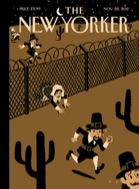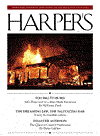 SOUNDTRACK: ART OF TIME ENSEMBLE WITH STEVEN PAGE-A Singer Must Die (2009).
SOUNDTRACK: ART OF TIME ENSEMBLE WITH STEVEN PAGE-A Singer Must Die (2009).
 According to their website, “Art of Time Ensemble is one of Canada’s most innovative and artistically accomplished music ensembles. Their mandate is to give classical music the contemporary relevance and context it needs to maintain a broader audience to survive.”
According to their website, “Art of Time Ensemble is one of Canada’s most innovative and artistically accomplished music ensembles. Their mandate is to give classical music the contemporary relevance and context it needs to maintain a broader audience to survive.”
So what you get is a modern orchestra playing contemporary music. It’s not a unique idea, but in this case, it works very effectively. And what you also get is Steven Page, former singer of the Barenaked Ladies as the vocalist. Page has an awesome voice. I’ve often said I could listen to him sing anything. And here’s a good example of him singing anything.
The great thing is that the song choices are unusual and wonderful–not immediate pop hits or classic standards–it’s a cool menagerie of songs with great lyrics and equally great compositions. This is no heavy metal with strings, this is majestic songs with orchestral scoring. The orchestra includes: piano, sax/clarinet, cello, violin, guitar and bass.
And the song choices are fascinating. And with Page’s amazing theatrical voice, the songs sound quite different, mostly because the original singers don’t have powerful voices. They all have interesting and distinctive voices, but not operatic ones. So this brings a new aspect to these songs (I knew about half of them before hand).
THE MOUNTAIN GOATS-Lion’s Teeth.
This is a very dramatic reading of this dramatic song. It pushes the boundaries of the original song.
ELVIS COSTELLO-I Want You.
I had never heard this Costello song. With Costello you never know what the original will sound like–punk pop, orchestral, honky tonk? It’s a fascinating song, though and Page hits some really striking and I would say uncomfortable notes.
RUFUS WAINWRIGHT-Foolish Love
I don’t know Rufus’ work very well, although I immediately recognized this as one of his songs. Page plays with Wainwright’s wonderful theatrics and makes this song his own.
BARENAKED LADIES-Running Out of Ink
Covering one of his own songs, this is fascinating change. The original is a fast, almost punky song, and it seems very upbeat. This string version brings out the angst that the lyrics really talk about (Page is definitely a drama queen).
LEONARD COHEN-A Singer Must Die
This is one of the great self-pitying songs and the lyrics are tremendous. Page takes Cohen’s usual gruff delivery and fills it with theater. It’s a great version.
JANE SIBERRY-The Taxi Ride
Coming from her early album The Speckless Sky, this is a wonderfully angsty song with the premise that is summarized: “it’s a long, long, lonely ride to find the perfect lover for your lover.” Page hits one of the highest notes I’ve heard from him here. Very dramatic.
THE DIVINE COMEDY-Tonight We Fly
This is one of my favorite Divine Comedy songs. Of course it is already string filled, so this version isn’t very different. But its wonderful to hear it in another context.
THE WEAKERTHANS-Virtute the Cat Explains Her Departure
I love this song. This is a guitar filled pop punk song, so the strings add a new edge to it.
THE MAGNETIC FIELDS-For We Are the King of the Boudoir
I know the Magnetic Fields but not this song. It’s quite clever and funny (as the Fields tend to be) and Page makes some very dramatic moments.
RADIOHEAD-Paranoid Android
I recently reviewed a covers album of OK Computer, wondering how someone could cover the record. The same applies to this song. A string orchestra is a good choice for it, as there is so much swirling and crescendo. And while nothing could compare to the original (and they don’t try to duplicate it), this is an interetsing choice. As is Page’s voice. He has a much better voice than Thom Yorke, but that actually hinders the song somewhat when he gets a little too operatic in parts. Nevertheless, it is an interetsing and enjoyable cover.
The whole record is full of over the top drama. It’s perfectly suited for Page and it’s a side of him that has peeked out on various releases but which he really gets to show off here. As an album, the compositions all work very well–they are, after all, trying to make classical pieces out of them–not just covering them. And the choices of songs are really inspired. Dramatic and interesting and when the music slows down, the lyrics lend to a wonderfully over the top performance.
If you like Page or orchestral rock, this is worth tracking down.
[READ: November 28, 2011] “Leaving Maverly”
For some reason I was under the impression that Alice Munro was no longer writing. I’m glad that’s not true, and really, what else would she do with herself–she has so many more stories to tell.
I think of Munro’s stories as being straightforward, but this one was slightly convoluted and actually had two things going on at once. It opens by discussing the old town of Maverly. Like many towns it once had a movie theatre. The protectionist and owner was a grumpy man who didn’t deal well with the public, and that’s why he hired a young girl to take the tickets and be the face of the theatre. When she got in the family way, he was annoyed, but immediately set out to hire someone else. Which he did. The new girl, Leah, came from a very religious family. She was permitted to work there under the stipulation that she never see or hear a movie or even know anything about them. And that she get a ride home. The owner balked at this second idea–he surely wasn’t going to drive her home. So instead, he asked the local policeman Ray, to walk her home. Which he agreed to do.
The next section of the story looks at Ray. And although the story is ostensibly about Leah, we get a lot more history of Ray. He was a night policeman only because his wife, Isabel, needed help at home during the day. We learn about the scandalous way he met his wife and how they managed through the years until she became ill.
Ray talks with Leah on their walks home, something he found terribly awkward because of how cloistered she was. Then he would get home and talk with Isabel about Leah. This young girl who meant nothing to him was suddenly a significant part of his life.
And then one day the theater owner came to report that Leah was missing. They went to see her father at the mill, but she wasn’t there. And there was really no other place where Leah went, so they were at a loss. It was winter and they feared the worst. (more…)
Read Full Post »
 SOUNDTRACK: STEPHIN MERRITT: Two Days, ‘A Million Faces’ (Project Song: November 4, 2007).
SOUNDTRACK: STEPHIN MERRITT: Two Days, ‘A Million Faces’ (Project Song: November 4, 2007). Project Song was a nifty little show that NPR Music created. The premise was that NPR would give a musician some prompts and a recording studio. They then had two days to write and record a song. I don’t know how much of the process was to be filmed, but presumably most of it. Then it would be edited down to a fifteen minute show. The results are pretty cool and it’s a shame they only made five of them.
Project Song was a nifty little show that NPR Music created. The premise was that NPR would give a musician some prompts and a recording studio. They then had two days to write and record a song. I don’t know how much of the process was to be filmed, but presumably most of it. Then it would be edited down to a fifteen minute show. The results are pretty cool and it’s a shame they only made five of them.The photograph he chose, by artist Phil Toledano, is an incredible image of a man covered head to toe in what looks like a bodysuit made of baby dolls.






